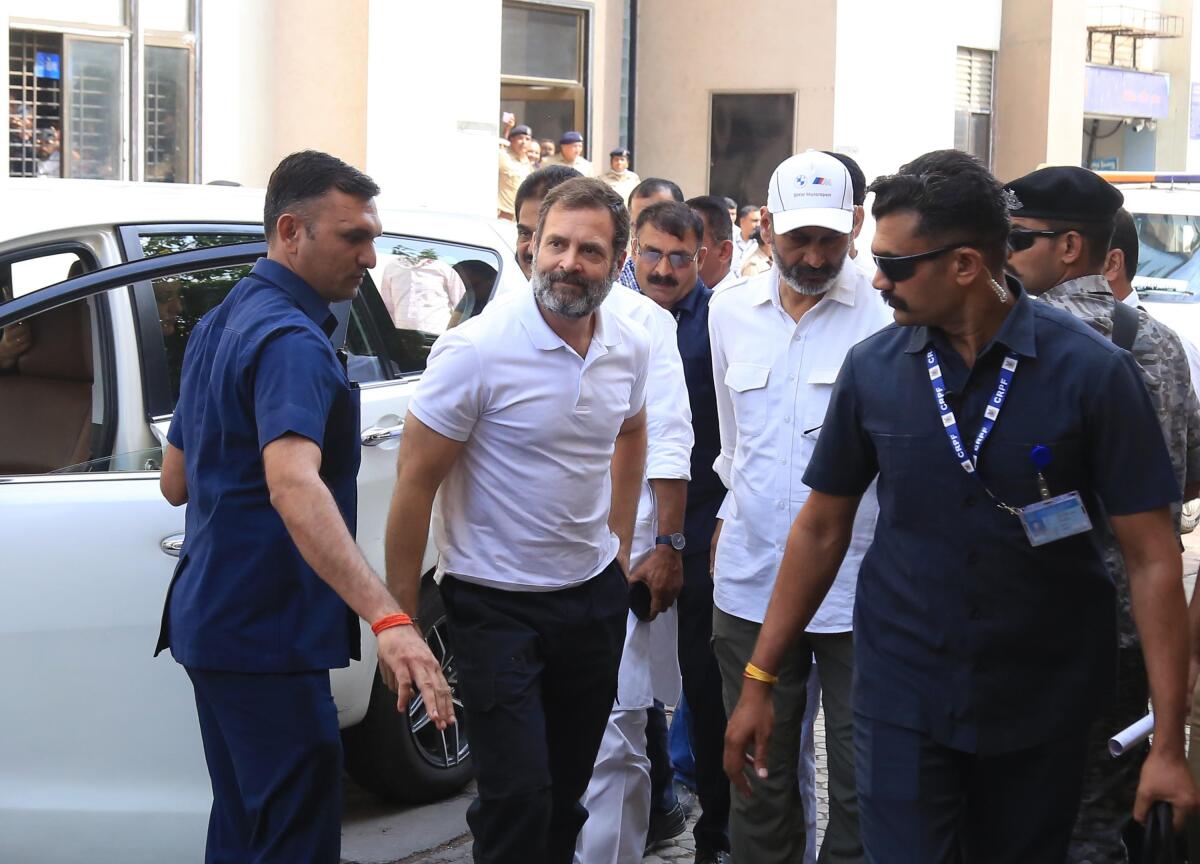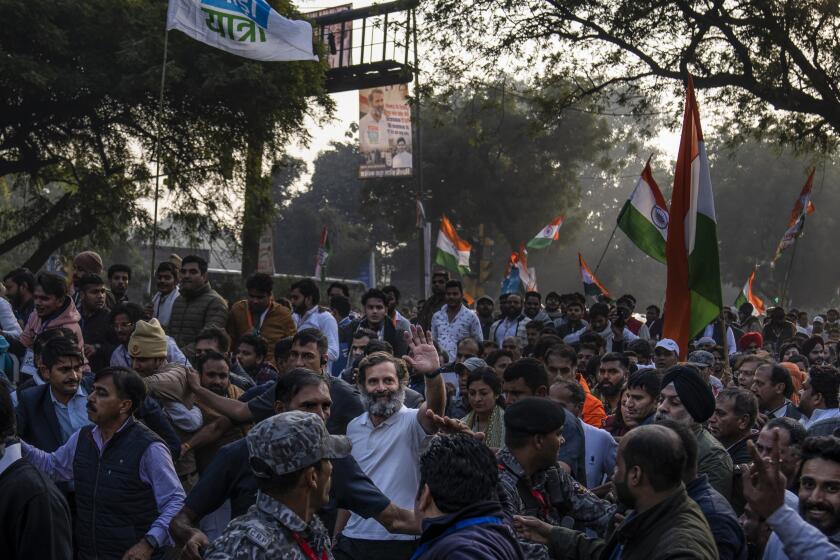Rahul Gandhi, India’s opposition leader, appeals his defamation conviction

- Share via
NEW DELHI — Indian opposition leader Rahul Gandhi appeared in court Monday to appeal a criminal conviction for mocking the prime minister’s surname, in a case that saw Gandhi expelled from Parliament and dealt a huge blow to his Congress party ahead of general elections next year.
Gandhi, a fierce critic of Prime Minister Narendra Modi and his main challenger in the 2024 polls, was ousted from Parliament after a court sentenced him to two years in prison for defamation for a comment made in a 2019 election speech.
The case against Gandhi, the great-grandson, grandson and son of former Indian prime ministers, was widely condemned by opponents of Modi as the latest assault against democracy and free speech by a government seeking to crush dissent. The speed of his removal from Parliament shocked political circles in India.
Gandhi flew from New Delhi to Surat, a city in India’s Gujarat state, on Monday to appear in a local court where he is expected to seek a suspension or temporary stay of his conviction, his lawyers told the Press Trust of India news agency.
A man who shares Modi’s surname, which is common in Gujarat, accused Gandhi of defamation over a 2019 speech in which he asked, “Why do all thieves have Modi as their surname?” Gandhi then referred to three well-known Modis in his speech, none of them related: a fugitive Indian diamond tycoon, a cricket executive banned from the Indian Premier League and the prime minister.
The petitioner who filed the case is a member of Modi’s Bharatiya Janata Party but is not related to the prime minister or the other two Modis mentioned by Gandhi.
Rahul Gandhi says India’s right-wing government is dividing the country along religious lines. Followers hope his cross-country march can save democracy.
Gandhi was convicted March 23 and expelled from Parliament the following day, prompting opposition lawmakers to rally to his defense and to call his expulsion a new low for India’s constitutional democracy. Gandhi was granted 30 days’ bail.
Under Indian law, a criminal conviction with a prison sentence of two years or more is grounds for expulsion from Parliament. If Gandhi’s conviction is not suspended or overturned by a higher court, he could face prison and would likely not be able to contest national elections in 2024.
Modi’s critics say India’s democracy — the world’s largest, with nearly 1.4 billion people — has been in retreat since he first came to power in 2014. They accuse his populist government of pursuing a religious nationalist agenda, which his administration denies. Modi’s government says its policies benefit all Indians, not just Hindus.
Gandhi’s family, starting with his great-grandfather, Jawaharlal Nehru, has produced three prime ministers. Two of them — Gandhi’s grandmother, Indira Gandhi, and his father, Rajiv Gandhi — were assassinated.
Even though Rahul Gandhi is projected to be Modi’s main challenger, his Indian National Congress party has suffered humiliating defeats in the last two general elections. In a bid to woo voters, Gandhi has railed against Modi and his Bharatiya Janata Party in recent months, accusing them of corruption and of tarnishing India’s democratic credentials.
More to Read
Sign up for Essential California
The most important California stories and recommendations in your inbox every morning.
You may occasionally receive promotional content from the Los Angeles Times.














